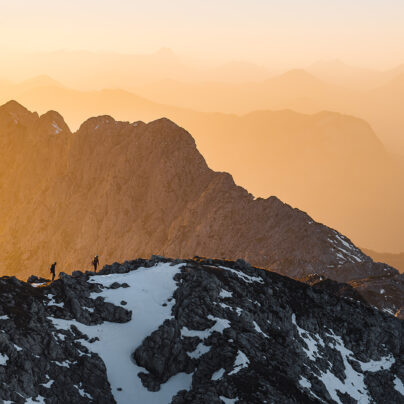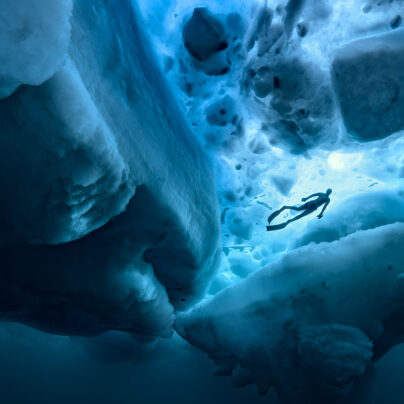Review: Polar Eskimo by Alex Hibbert
From The Field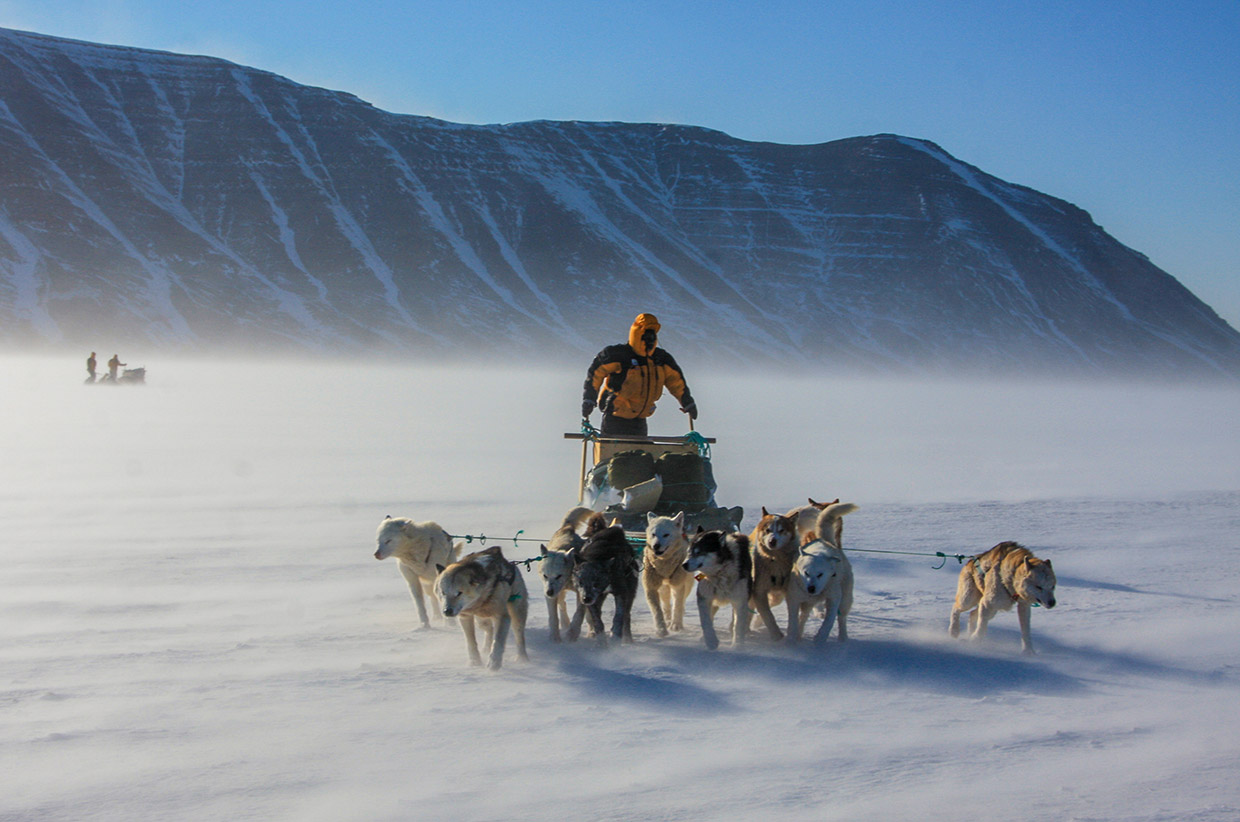
Alex Hibbert’s account of life among the Polar Eskimos is a worthy addition to the literature of Arctic exploration – and at a time when this traditional way of life is threatened by climate change, the book’s message is more important than ever.
Review by Alex Roddie
‘Understanding Polar Eskimo life is not straightforward,’ Alex Hibbert writes. ‘Without you becoming part of one yourself, the secrets and subtle details of family life are well guarded.’
Alex Hibbert’s fourth book is a work of real substance that rewards slow and careful study. If you’re looking for a high-octane page-turner then you might be looking in the wrong place; while Polar Eskimo has its fair share of excitement, this is a story about patience, perseverance, and building something of real value that has little to do with world records or big headlines.
The book begins with Alex Hibbert leading a small team to the village of Qaanaaq in Avanerriaq, Greenland. Their original objective was very much focused on a specific goal: the Dark Ice Project, a long-planned attempt to reach the North Pole in winter, starting from Qaanaaq as their base. They don’t intend to stay in Qaanaaq for long, but conditions prompt some tough choices and Dark Ice is postponed.
The story pivots at this point, and a weaker writer might not be able to carry it off without losing the reader. Alex Hibbert’s prose is dense in detail, unhurried, but with subtle depths of observation and insight. Combined with strong character interest, these qualities keep the reader reading while the true story begins to unfold.
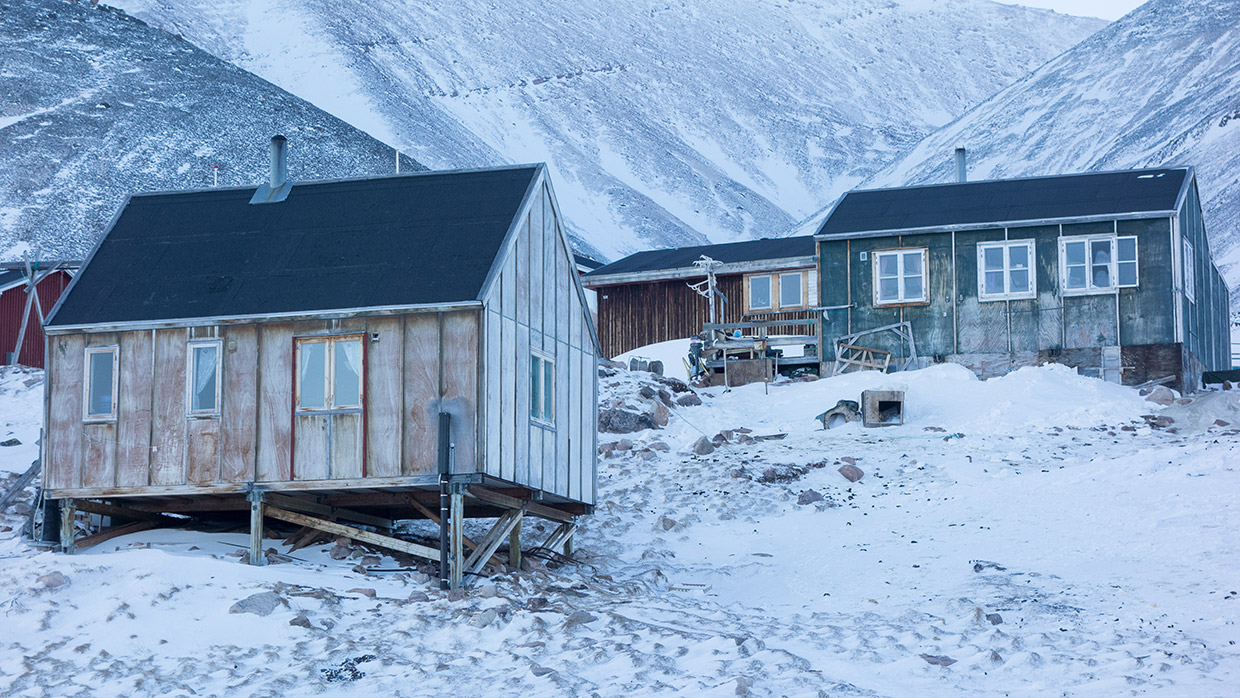
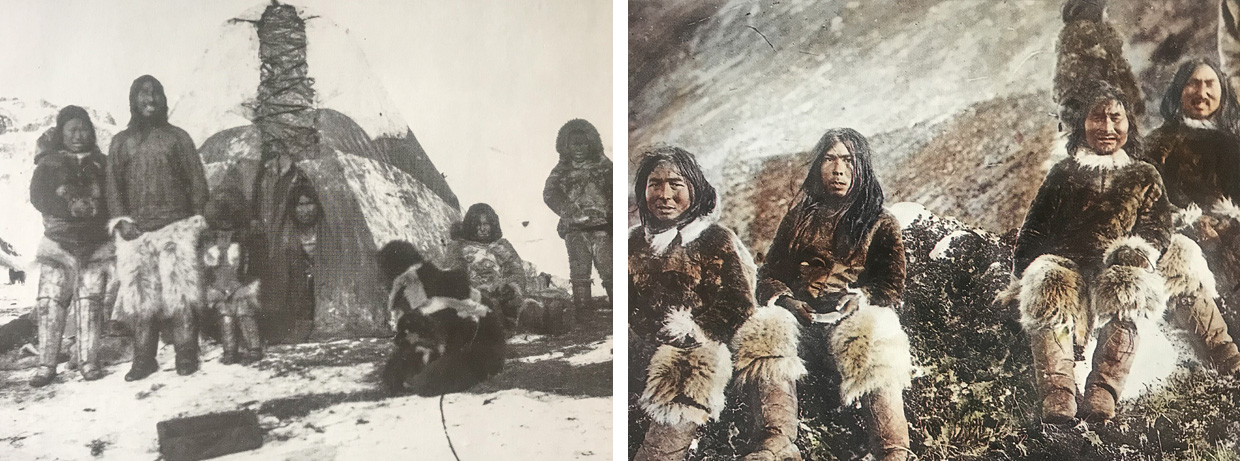
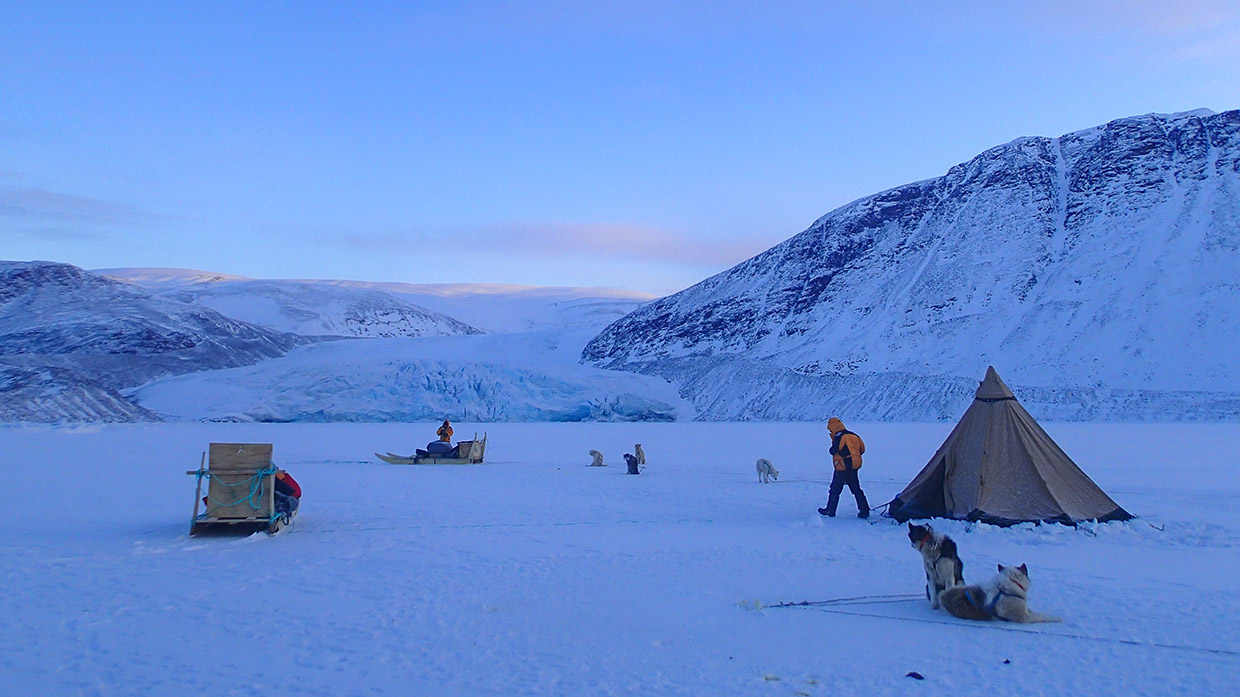
The team decide to remain in Qaanaaq over the winter and train a team of dogs, then master the art of dog-sledding over the polar ice. This is a lot more difficult than it sounds. Although the team aspire to some big dog-powered journeys, they have no headline-grabbing objective to work towards, and so the learning curve itself must be their motivation. The task is colossal. It’s later revealed that most of the people in Qaanaaq expect them to fail.
Integrating with the community is a vital part of this process, and one that’s just as challenging as training the dogs. Simply establishing a base and purchasing the animals requires a degree of mutual respect. That’s before they begin the job of building their sleds – skilled work that they wouldn’t have a hope of getting right without collaboration with the local people.
Slowly, as the months pass, the team members integrate and practise the ancient skills central to travelling by dog sled across the polar ice. For the people of Qaanaaq and nearby settlements this skill is no mere curiosity from a bygone age – dog-powered travel is still the main way to get around, and traditional hunting techniques are vital to their whole way of life. Watching the learning process unfold for these outsiders with limited prior knowledge of these skills is absolutely fascinating. The book offers rare and valuable insights into the lives of the Polar Eskimos – rare because few modern adventurers or explorers have immersed themselves in traditional Greenlandic culture so deeply or for as long, and valuable because climate change is threatening this way of life. These communities depend on the sea ice, and it’s shrinking every year.
Polar Eskimo is one of the most rewarding books on exploration and wilderness I’ve read in some time. The narrative doesn’t grab you with epic deeds, but stick with it and you’ll be treated to one of the most intimate and illuminating accounts of life among native Arctic people I’m aware of in modern literature – as well as a damned good tale of explorers breaking the explorer mould and spending some time ‘being’ instead of just ‘doing’.
Polar Eskimo by Alex Hibbert is available from alexhibbert.com/author/polareskimo for £15. Written by Alex Roddie // Photography © the Dark Ice Project team (historic images via the public domain – copyright expired).

